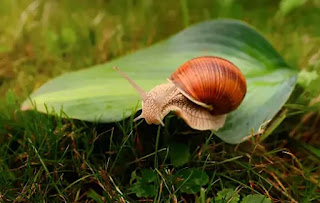18th Century Hotels
Dear Readers,
The precursor to the modern hotel was the inn of medieval Europe. For a period of about 200 years from the mid-17th century, coaching inns served as a place for lodging coach travellers. Inns began to cater for wealthier clients in the mid-18th century. One of the first hotels in a modern sense was opened in Exeter in 1768. Hotels proliferated throughout Western Europe and North America in the early 19th century, and luxury hotels began to spring up in the later part of the 19th century, particularly in the United States.
Some English towns had as many as ten inns and rivalry between them became intense, not only for the income from stage coach operators but from the revenue from the food and drink supplied to the wealthy passengers.
Apparently The George Inn at Norton St. Philip claims to have had a licence to serve ale from 1327 and identifies itself as Britain's oldest tavern. The George has a long and interesting history. The diarist Samuel Pepys passed through here on his way to Bath from Salisbury. The Royal Clarence Hotel is a former hotel in Cathedral Yard, Exeter, Devon. It is often described as the first property in England to be called a hotel.
*
This is a plea. Over the many years I have written this blog I have sometimes asked you folks who read it to write to me about something I wanted to know. I have never had any reply. Over the last four weeks I have had over 10,000 likes from Hong Kong. I am of course very pleased that you people from Hong Kong like the blog, but why do you like it? Please will one of you write and tell me what it is about it that you like. I will be very grateful.
patricia.huthellis@googlemail. com
is the email address.
*
From Samuel Pepys May 1st 1665 in London
'To Westminster, in the way meeting many milkmaids with their garlands upon their pails, dancing with a fiddler before them.'
From Dorothy Wordsworth May 1st 1802 in Westmorland
'As soon as breakfast was over, we went into the garden, and sowed the scarlet beans about the house. It was a clear sky, a heavenly morning. I sowed the flowers, William helped me. We then went and sate in the orchard till dinner time. It was very hot. William wrote the Celandine.'
From Gerald Manley Hopkins May 1st, 1872 in Lancashire
'We have a cherry tree from head to foot every branch sleeved with white glossy blossom.'
*
Hotel Room
Imagine the cellars, 1718
storing meat
fruit and onions,
apples on slats
maturing, ripening
within peeling walls.
Mouse holes and
a smell of damp and decay.
A smaller room attached -
a game larder,
where pheasants, snipe,
partridges, rabbits, hares
and ducks are hung on hooks
or from the rafters.
Large clay pots sit in the corner
full of earth and potatoes.
See the rooms, basement now, 2018.
Pristine white walls, Farrow and Ball,
arches and pillars over large bed
black sofa, black cushions,
lush bedside lamps,
the bathroom heats underfloor
large bath, rolled white flannels
gold taps.
Where has all the magic gone?
*
With very best wishes, Patricia
No prizes for guessing.











